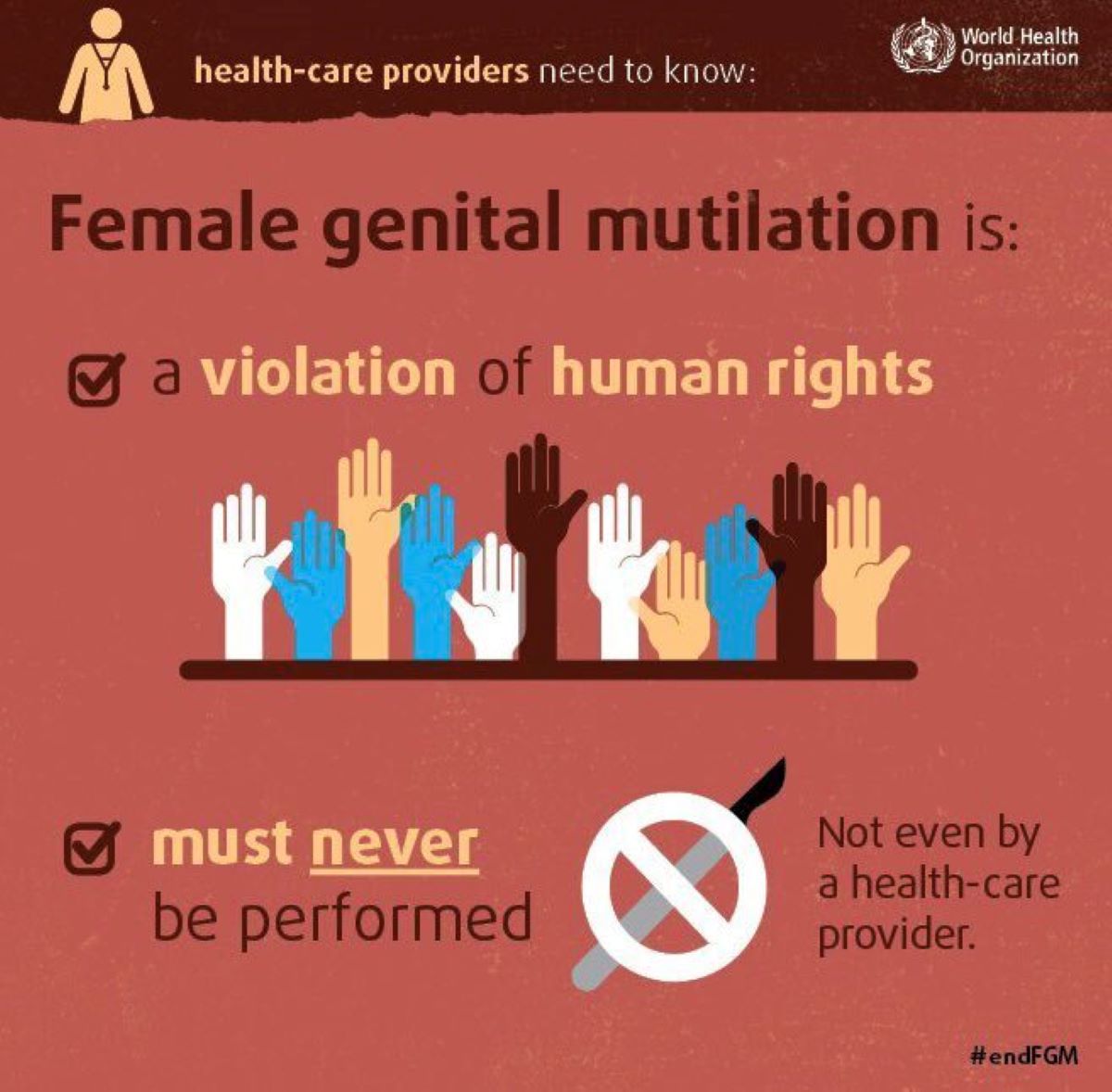KUALA LUMPUR, Feb 21 – The World Health Organization (WHO) has launched two new training tools for health care providers on care for girls and women subjected to female genital mutilation (FGM).
One is on person-centred communication for health care providers, while another integrates FGM content into nursing and midwifery curricula.
WHO observed the rising trend of the “medicalisation” of FGM in recent years, a harmful practice performed by health care providers themselves.
“The position of WHO is clear: there is no justification – medical or otherwise – for carrying out female genital mutilation. It causes only harm, and is a grave violation of human rights,” Christina Pallitto, scientist at WHO and HRP and expert on female genital mutilation, said in a February 3 release by WHO.
“But it can be difficult for health care workers to know what to do when a family asks them to do FGM. This new training helps them learn how to say ‘no’ – and, crucially, how to listen to people in their care and change minds, all with a person-centred approach.”
WHO’s new training guide for health care providers teaches participants how to discuss women’s beliefs about FGM during a clinical consultation, including antenatal care visits, and how to encourage women to rethink their beliefs about FGM and empower them to abandon the practice.
Health care providers will also be educated on the ethical implications of medicalised FGM and, crucially, learn ways to resist requests to carry it out.
WHO’s other guide for midwifery and nursing provides different approaches on FGM treatment and care that can be considered as interim solutions, since integrating training content through curricula may not be feasible for all countries.












